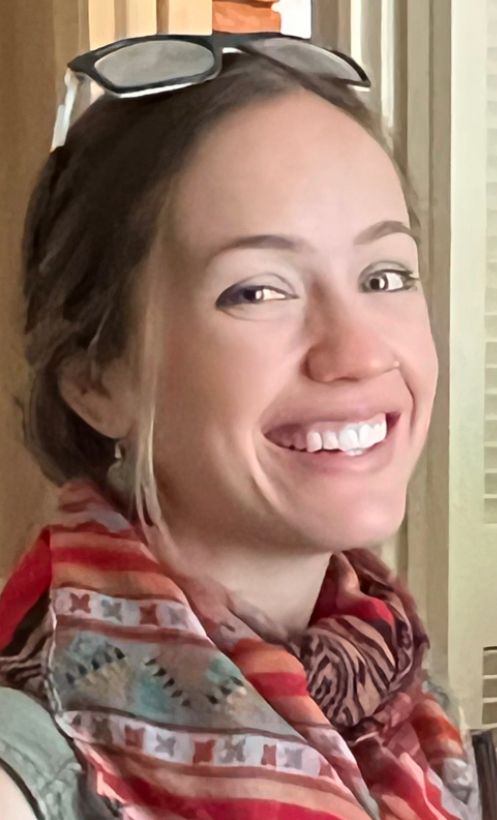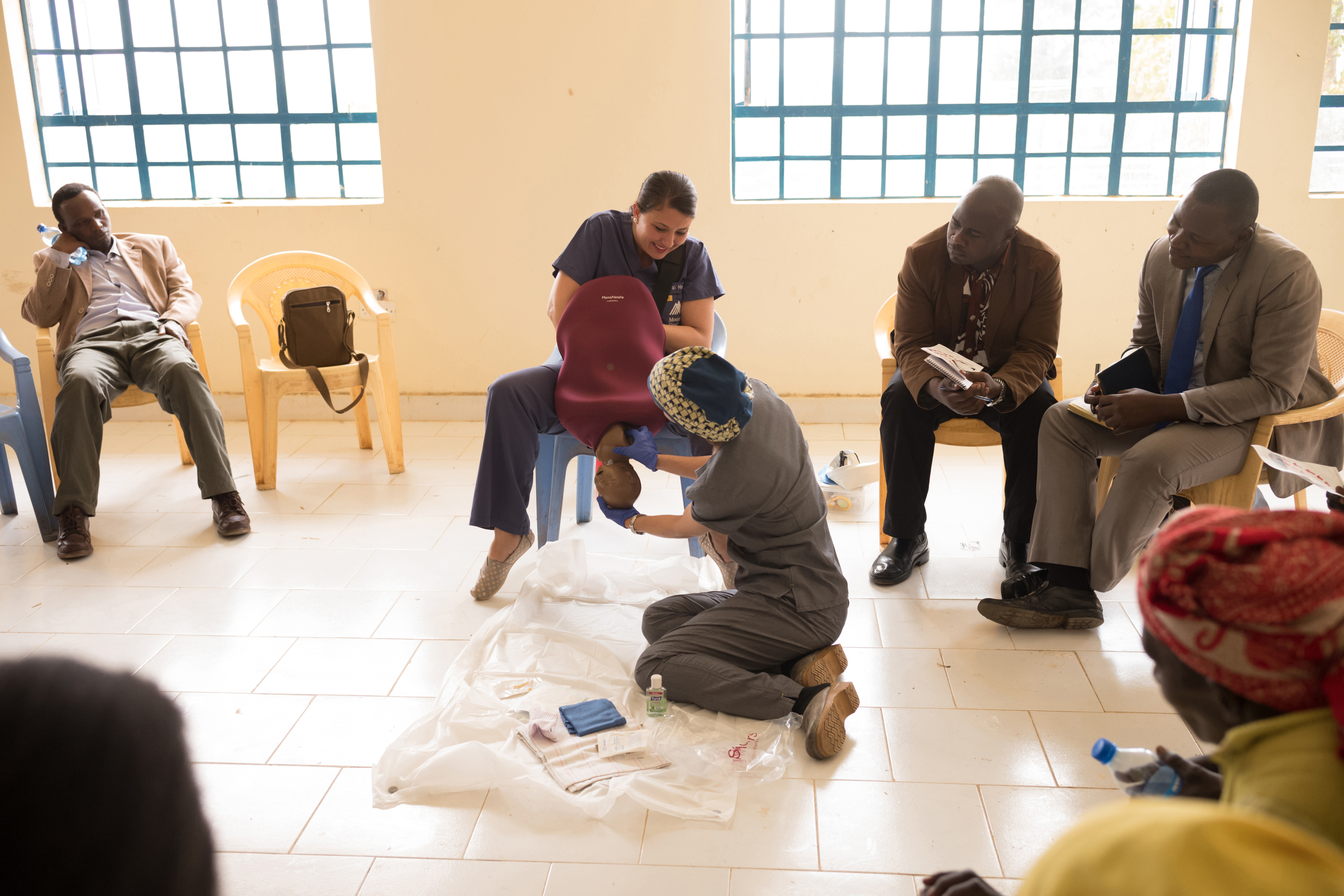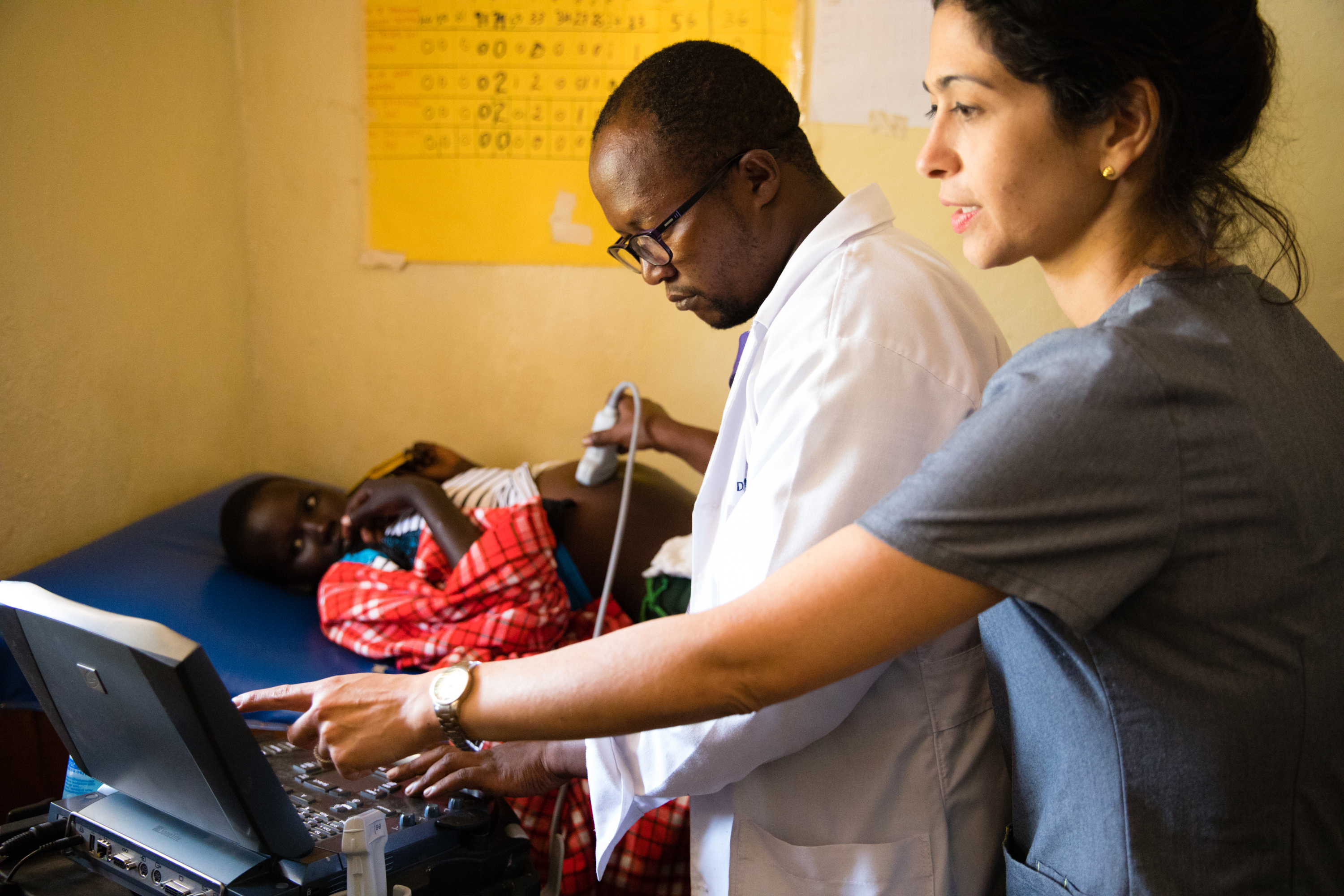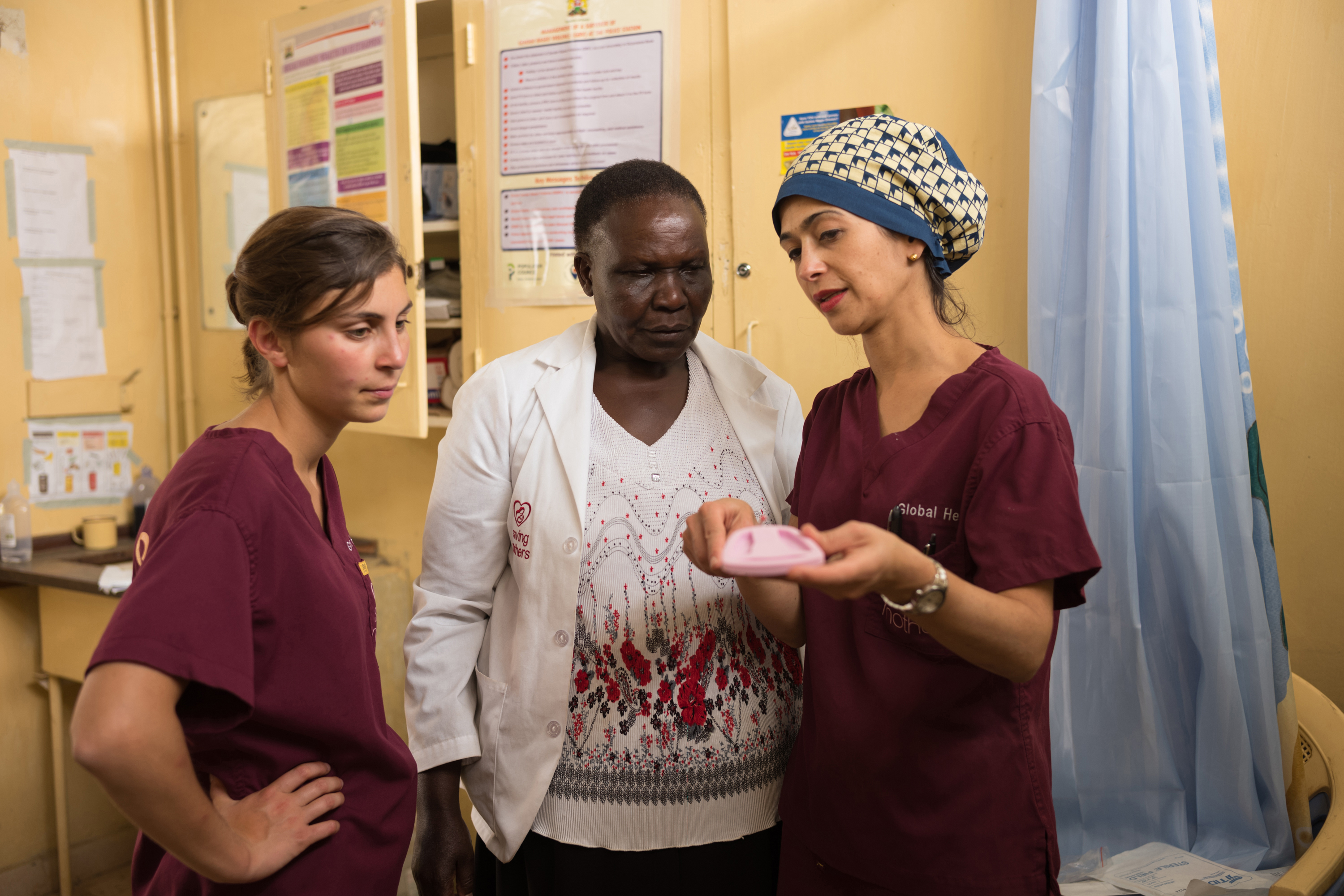Kenya
Maternal Continuum of Care
New Traditional Birth Attendant Training Program In West Pokot, Kenya


Meet Meghan Beddow, M.D. who has been on site in West Pokot, Kenya since the beginning of September leading a traditional birth attendant training program. Dr. Beddow is a physician specializing in obstetrics and gynecology, with a strong passion for decreasing disparities in access to quality health care throughout the world. She earned her medical degree from The Ohio State University and completed her residency at The University of New Mexico. Throughout her training, she sought opportunities to work for the improvement of women’s health in underserved populations both locally and globally and has participated in and led projects in various contexts in Latin America and Africa. Following training, she practiced in Malawi and Sierra Leone, and after two years working with the Alaska Native population, has now made her way back to the African continent. She currently serves as Saving Mothers’ on-the-ground ObGyn in West Pokot, Kenya, teaching a cohort of traditional birth attendants (TBAs) and supporting the local medical team at Kapenguria County Referral Hospital.
Over 3 months, Dr. Beddow and a group of local TBAs will follow a course adapted from the Guatemala School of POWHER curriculum to bolster the knowledge, skills, and confidence of maternal health providers in the region. TBAs will cover a range of materials from female physiology and family planning to emergencies during pregnancy and delivery.

Maternal Continuum of Care Program
Need
Despite some progress made by the Millenium Goals,
Kenya's maternal mortality rate of 362 deaths per 100,000 live births remains among the highest in the world.
Kenya is considered one of the most dangerous places in the world to be pregnant.
The cause is multifactorial
- Barriers to access
The distance to a hospital is far & cost of travel is prohibitive
- Low use of prenatal care services
Only 50% of women attend even one prenatal care visit
- High rates of home deliveries
In rural areas, up to 83% of deliveries are at home
- Female genital mutilation (FGM) has an impact on maternal & neonatal health outcomes. FGM causes vaginal wall scarring and abnormalities that alter the birth canal. This results in babies dying from asphyxia due to obstructions at the vaginal wall. Unfortunately, most local providers are not properly trained in managing this complication.
Response
In collaboration with the West Pokot Ministry of Health we developed a Maternal Continuum of Care program designed to promote facility based prenatal care-seeking and increase the number of hospital deliveries. We recently incorporated family planning into our continuum, offering free post partum IUD placement for women who deliver at the hospital.
Provider training is an essential element of our program. Our medical team travels to Kenya 2-3 times per year for pro bono surgical missions to correct birth-related complications such as fistula and incontinence, and we capitalize on this opportunity to train local providers on clinical protocols and surgical procedures, including those required to facilitate deliveries for patients with female genital mutilation (FGM). Another critical aspect of this collaboration involves piloting a low-tech preterm birth indicator in this population. We are very excited about this study, as the ability to predict preterm birth would enable providers to triage at-risk patients and ensure that they receive appropriate care: care which is essential to survival of the newborn.
And we have gotten results
Our Maternal Continuum of Care Program was launched in West Pokot in early 2015 and since then:
Our work in action
Photographer Lori Hawkins documented her experiences in West Pokot




